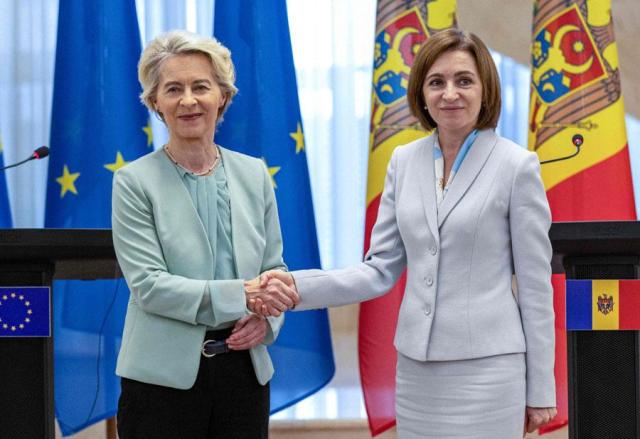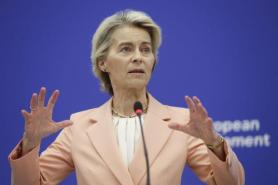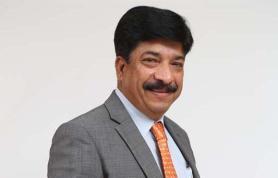
One of the key reasons for this is that a referendum on EU membership has been scheduled for the same day, Oct. 20.
The challenges for this small country, wedged between Ukraine and Romania, are complex. Russia continues to foment instability through its persistent disinformation initiatives, instigation of anti-government protests, and acts of sabotage and vandalism.
Add to this credible allegations of vote buying, and efforts to call into question the legitimacy of a pro-European election and referendum result, and the situation in Moldova appears highly combustible.
Moldova gained its independence in 1991 after the fall of the Soviet Union. A brief civil war between the government and separatists in the eastern Transnistria region, supported by remnants of the Soviet army stationed there, ended with the de-facto division of the country.
Attempts to settle this conflict have made little progress over the past three decades. And living with an unresolved conflict within its borders has held Moldova back in its development, and contributed to economic problems.
Voting on EU membership
Moldova's incumbent, staunchly pro-western president, Maia Sandu, has tied the EU referendum to her re-election campaign. The referendum could be the country’s best chance to finally break free from its Soviet past.
If recent polls are accurate, a clear majority of the electorate is likely to vote "yes" on whether they support joining the EU, which would be the first step in a lengthy process.
For many Moldovans, EU membership is associated with better economic development in one of Europe's poorest countries. The Oct. 10 visit of Ursula von der Leyen, president of the European Commission, suggested that the EU could help.
Von der Leyen did not merely offer political support for Sandu, she also brought with her a financial support package worth €1.8 billion (£1.5 billion) over the next three years to boost economic growth.
But this vision that the EU can help Moldova's economy is fiercely contested by Russia and its proxies in Moldova. They exploit the anxiety among a significant number of Moldovans that a vote to join the EU is one that will force the country towards higher inflation, more immigration, politicized anti-corruption measures, mandatory English-language proficiency, and the sale of Moldovan land to foreigners.
Persistent domestic issues such as the economy have been skillfully targeted in a vast Kremlin-backed influencing campaign.
For a long time, Moldova has suffered from a lack of social, political, institutional and territorial cohesion. The country has significant social divisions between different ethnic and linguistic groups, as well as urban-rural and rich-poor divides.
Politically, the party system remains highly fractured and increasingly polarized, and lacking common ground over what Moldovan national identity stands for.
Moldova's challenges
Moldova's territorial disputes also remain challenging. This is most obvious in the pro-Russian Transnistria region and in Gagauzia, but also in ethnically and culturally distinct regions such as Balti and Taraclia.
These regions will require careful management to prevent a major political and economic crisis in the aftermath of Oct. 20 and beyond. Some of the reforms in the country as part of the integration process, such as EU regulations on competition, subsidies and market access, will have a short-term cost for Moldova. Moldovans who oppose the country's westward orientation are likely to exploit this in anti-EU narratives.
So far, Russian destabilization operations don't seem to have eroded most Moldovans' European aspirations. But the mix of blunt disinformation and skillfully capitalizing on the cost of living crisis, which has hit Moldova hard as a result of the war against Ukraine, has given Russia and its allies tools to entrench, and in some cases deepen, divisions here.
Much of the pro-European campaigning has been framed as anti-Russian. But one of the cleverer moves by the pro-Russian movement is to suggest that Moldovans can be both a friend to Moscow and Brussels, and don't have to choose.
If a Sandu government is building a pro-European alliance, she will want to grow support from the Russian-speaking part of the population. This will be essential to both counter Russian destabilization efforts and to build a broader coalition.
As countries that have joined the EU – from the Baltic to the Balkans – have demonstrated over the past two decades, the EU accession process can help reshape political and economic institutions, and can ultimately help create a more optimistic vision of the future.
Crucially, this is not something that Russia's narrative of fear can credibly offer to the majority of Moldovans.
-------------------------------------------------------------------------------------------------------------------------
Stefan Wolff is a professor of international security at the University of Birmingham in England.
This article was republished under a Creative Commons license with The Conversation. The views and opinions in this article are solely those of the authors.
https://theconversation.com/moldova-votes-on-whether-to-join-eu-as-russia-intensifies-vast-disinformation-campaign-240657
Copyright ⓒ Aju Press All rights reserved.



